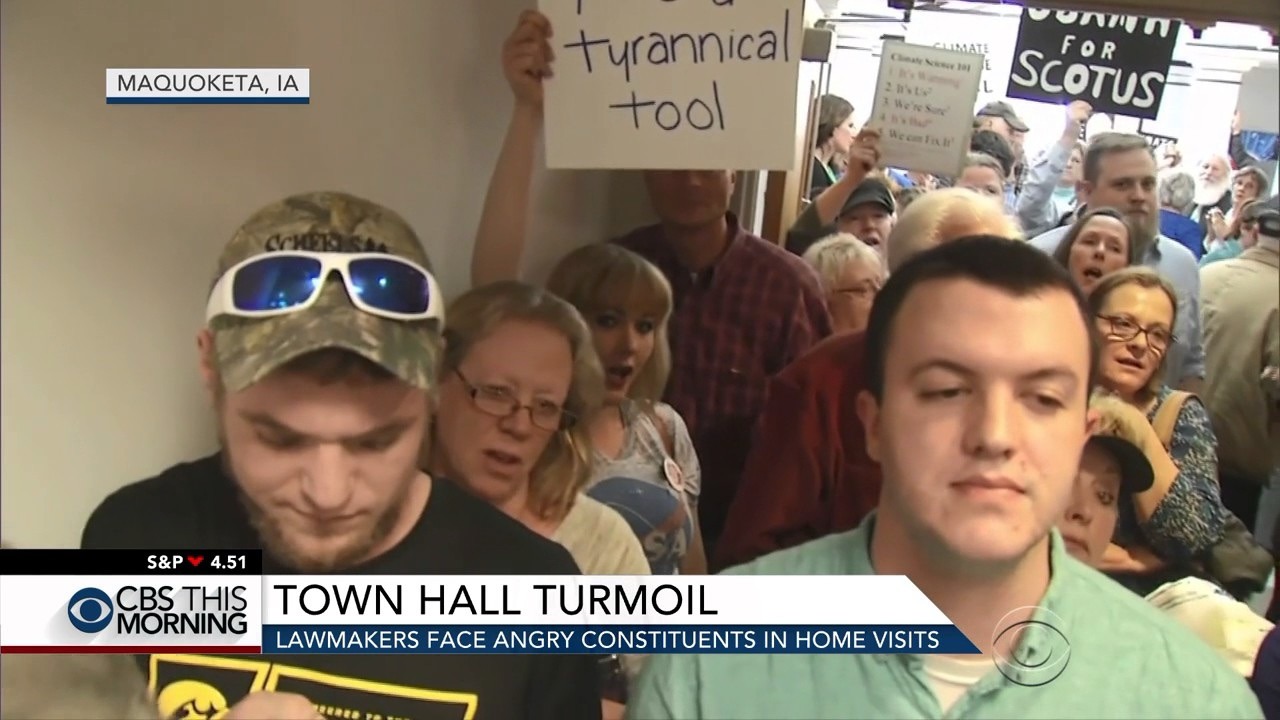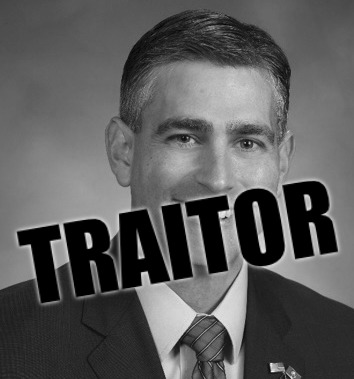The Republican Party’s strategy of pushing extreme budget cuts while shielding the ultra-wealthy from tax burdens has triggered a wave of public anger, even in districts that have historically been safe for them. In the month since Trump’s second inauguration, his administration—led by Elon Musk’s Department of Government Efficiency (DOGE)—has implemented drastic reductions in federal spending, leading to over 20,000 job losses. These cuts have disproportionately harmed working- and middle-class Americans, including many of the very people who supported Trump in the election. Now, as constituents voice their outrage at town halls, Republican lawmakers are responding not with accountability, but with retreat, avoiding public scrutiny rather than facing the voters they claim to represent.
Across the country, town halls that were expected to be routine affairs have turned into scenes of protest and confrontation. In safe Republican districts, where representatives assumed they would receive warm receptions, constituents have instead shown up angry about the consequences of the administration’s decisions. The backlash has been particularly fierce in states like Oklahoma, Idaho, and even parts of deep-red Texas, where GOP lawmakers have been met with jeers, pointed questions, and demands for answers. Rather than engage in meaningful dialogue, Republican leadership has reportedly instructed members to cancel or limit these town halls, fearing further damage to their public image.
The decision to avoid public engagement speaks volumes about the Republican Party’s priorities. Instead of addressing the real harm their policies are causing, they are choosing to shield themselves from criticism. This refusal to answer for their actions is not just cowardly—it is a fundamental betrayal of the democratic process. Elected officials are supposed to represent and be accountable to the people, not hide from them when their policies prove unpopular. The GOP’s strategy appears to be one of avoiding public scrutiny in the hopes that voter outrage will fade before the next election cycle.
But the frustration isn’t going away. While Republican lawmakers duck town halls, their constituents are left to deal with the fallout of Musk’s aggressive budget cuts. Federal employees who lost their jobs, rural communities stripped of essential services, and businesses suffering from reduced government contracts are all feeling the economic pain. Many of these people voted for Trump expecting prosperity, not sudden financial insecurity. Instead of acknowledging their struggles, Republican leaders are banking on distraction and avoidance, hoping that voters will forget who is responsible for their hardship.
This growing dissatisfaction could have significant political consequences. While Republican districts remain structurally favorable to the party due to gerrymandering and voter suppression tactics, public anger is already making itself felt. If GOP representatives continue to refuse to face their constituents, it could weaken their hold on districts once considered unshakable. Democrats are seizing on the moment, highlighting Republican inaction and launching grassroots organizing efforts in places they once considered unwinnable.
Trump himself remains as defiant as ever, dismissing the protests and outrage as “fake news” and “Democrat plants.” His administration is doubling down on the very policies that sparked this backlash, showing no interest in adjusting course. Instead of listening to working Americans, Trump and House Republicans are focused on delivering tax cuts for billionaires, gutting social programs, and slashing regulations, all while ignoring the growing unrest among their own voters. The disconnect between their actions and the struggles of everyday Americans is only becoming more obvious.
The contrast between Republican avoidance and Democratic engagement is stark. While GOP lawmakers are canceling town halls and refusing to meet with angry constituents, Democratic candidates and officials are showing up. Many are organizing listening sessions, attending protests, and publicly challenging Republican lawmakers to debate the issues. This is a moment of political opportunity for the opposition, as voters—especially in red districts—begin to feel abandoned by their representatives.
By refusing to face the public, Republicans are only making the situation worse for themselves. The more they hide, the angrier people become. Social media is filled with videos of empty meeting halls, canceled events, and constituents left without answers. Every town hall that doesn’t happen becomes another symbol of GOP cowardice. The more they avoid their voters, the more they confirm the perception that they are only interested in serving the wealthy and powerful, not the people who elected them.
If history is any guide, ignoring public frustration is a dangerous strategy. In 2018, after Trump’s first two years in office, a similar wave of discontent led to a Democratic landslide in the midterms. Now, Republicans are repeating the same mistakes, assuming that they can ignore their way out of a political crisis. But voter anger doesn’t just disappear. It builds, it organizes, and eventually, it turns into action at the ballot box.
The GOP’s decision to hide from their own voters reveals the deep fragility of their current political position. Their policies are unpopular, their leader is divisive, and their response to public outcry is to retreat instead of engage. This is not the behavior of a confident, governing party—it is the reaction of a group that knows its grip on power is slipping. If they continue down this path, they may find that by the time they decide to listen, the voters will have already decided to replace them.





